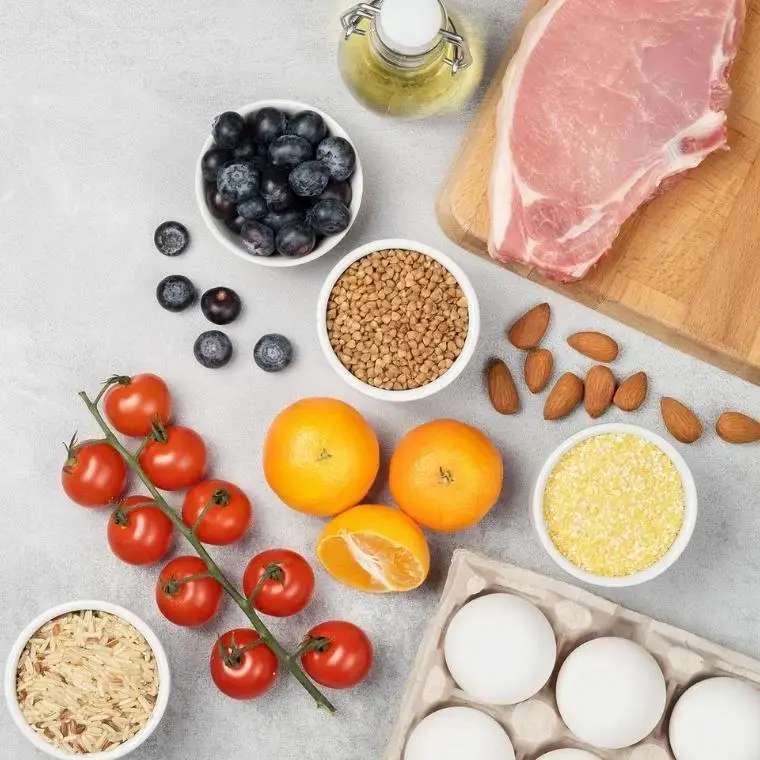Services
Understanding FODMAP and the Low FODMAP Diet
FODMAPs are a group of food components that are not completely digested or absorbed in our intestines. They move slowly through the small intestine, attracting water, and are eventually fermented by gut bacteria in the large intestine. This fermentation produces gas, which, combined with the extra water, causes the intestinal wall to stretch and expand. For individuals with Irritable Bowel Syndrome (IBS) or other gut issues, this can lead to symptoms such as pain, excessive wind, bloating, distension, and altered bowel habits (diarrhea, constipation, or both).
Low FODMAP Diet
FODMAP stands for Fermentable, Oligosaccharides, Disaccharides, Monosaccharides, and Polyols. These are types of carbohydrates that are metabolized into sugars and are found in various foods. The Low FODMAP Diet is not a traditional diet; it is designed for those who have difficulty absorbing specific carbohydrates in certain foods, which can lead to IBS or other bowel disorders.
High FODMAP foods include those containing fructose, high fructose corn syrup (HFCS), or sorbitol, such as certain fruits and vegetables, processed foods, some medications, and other food items. If you experience symptoms such as gas, bloating, abdominal pain, and diarrhea after consuming these foods, it is recommended to avoid or reduce them.
The Low FODMAP Diet works by first eliminating any high FODMAP foods that you consume in excess. If this does not alleviate symptoms, cut out all high FODMAP foods for 6-8 weeks. After this period, slowly reintroduce high FODMAP foods into your diet to identify which ones trigger symptoms. Over time, you should be able to determine your individual FODMAP intolerances.


FODMAP Diet Plan
Choose Health
| Food Group | Serving Size and Suggestions | Low FODMAP | Moderate FODMAP | High FODMAP |
|---|---|---|---|---|
| Fruits | ½ cup of cut fruit or a medium (baseball size) whole fruit. Limit to 1 to 2 servings per day. Fresh or fresh frozen fruit may be better tolerated than canned fruit. Tolerance may depend on the amount you eat at one time. Limit concentrated sources of fruit, such as dried fruit and fruit juices. | Bananas Blueberries Cantaloupe Grapefruit Grapes Honeydew Kiwi Lemons Limes Oranges Papaya Passion Fruit Pineapple Raspberries Rhubarb Strawberries Tangelos Note: Avoid eating large amounts of any fruit. | Canned Fruit | Apples Applesauce Avocados Blackberries Dried Fruits (e.g., raisins, dates) Fruit Juice Lychees Pears Persimmons Watermelons Stone Fruits: Apricots Cherries Mangos Nectarines Peaches Plums Prunes |
| Vegetables | ½ cup for most vegetables or 1 cup of leafy greens Limit to 1½ to 3 servings per day. Cooked vegetables may be tolerated best since cooking causes a loss of free sugars. Keep in mind tolerance may depend on the amount you eat at one time. | Bamboo shoots Bok choy Carrots Celery Chives Cucumber Eggplant Green beans Kale Lettuce Parsnips Pumpkin Radish Red bell pepper Spinach Squash Sweet potato Turnip White potato Zucchini | Corn Green Peas Tomatoes | Artichokes Asparagus Beets Broccoli Brussels sprouts Cabbage Cauliflower Fennel Garlic Green bell peppers Leeks Mushrooms Okra Onions Shallots Sweet corn Tomato paste |
| Dairy | Kefir Lactose Free Milk Lactose Free Cottage Cheese Lactose Free Yogurt Hard or Aged Cheeses Butter Cream Cream Cheese | American Cheese | Milk Yogurt Ice Cream Cottage Cheese Ricotta Cheese |
|
| Grains | Quinoa Rice Millet Cornmeal Gluten-Free Products | Oats Buckwheat Sourdough White Bread | Wheat Barley Rye |
|
| Legumes and Nuts | Firm And Medium Tofu Pumpkin Seeds Sesame Seeds Sunflower Seeds | Canned and drained chickpeas and lentils Nuts and nut butters except pistachios and cashews Flax Seeds | Soy (silken tofu, textured vegetable protein, edamame, soy nuts, soy milk) Beans Chickpeas Hummus Lentils Pistachios Cashews |
|
| Beverages | Espresso Filtered Coffee Green Tea Peppermint Tea Black Tea | Soft drinks that include high fructose corn syrup or crystalline fructose Apple Juice Other Fruit Juices Apple Cider Instant Coffee Chamomile Tea Fennel Tea |
||
| Sweeteners | Granulated Sugar Evaporated Cane Juice Brown Sugar Brown Rice Syrup Pure Maple Syrup Corn Syrup Sugar Cane Molasses Aspartame Saccharin Sucralose Stevia | Cocoa | High Fructose Corn Syrup Crystalline Fructose Honey Agave Sugar Beet Molasses Sorbitol Xylitol Mannitol Maltitol |
